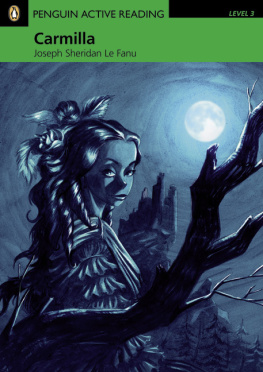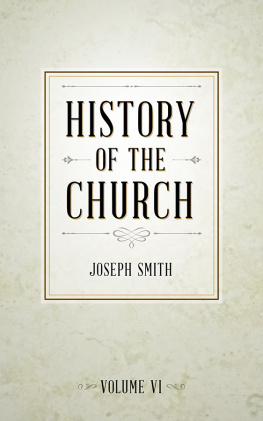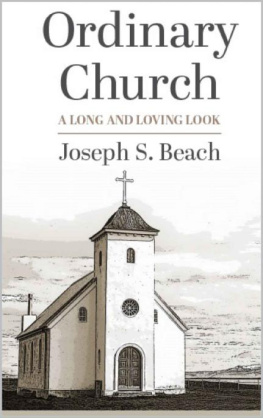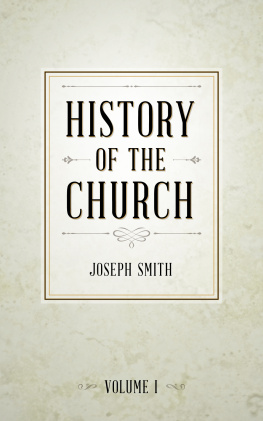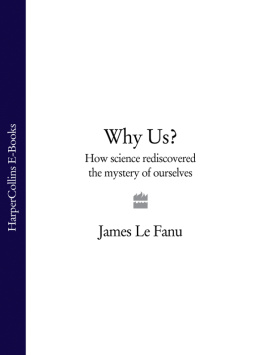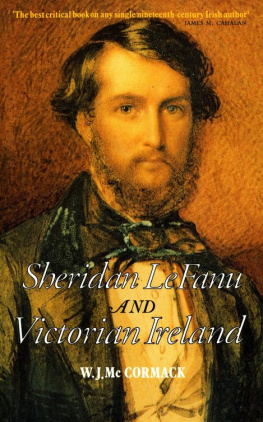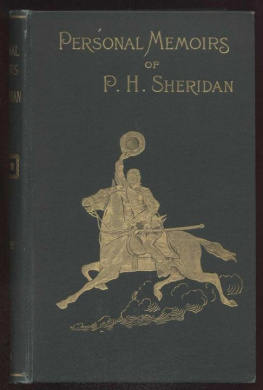Joseph Sheridan Le Fanu - The House By The Church Yard
Here you can read online Joseph Sheridan Le Fanu - The House By The Church Yard full text of the book (entire story) in english for free. Download pdf and epub, get meaning, cover and reviews about this ebook. year: 1863, publisher: epubBooks, genre: Adventure. Description of the work, (preface) as well as reviews are available. Best literature library LitArk.com created for fans of good reading and offers a wide selection of genres:
Romance novel
Science fiction
Adventure
Detective
Science
History
Home and family
Prose
Art
Politics
Computer
Non-fiction
Religion
Business
Children
Humor
Choose a favorite category and find really read worthwhile books. Enjoy immersion in the world of imagination, feel the emotions of the characters or learn something new for yourself, make an fascinating discovery.

- Book:The House By The Church Yard
- Author:
- Publisher:epubBooks
- Genre:
- Year:1863
- Rating:4 / 5
- Favourites:Add to favourites
- Your mark:
- 80
- 1
- 2
- 3
- 4
- 5
The House By The Church Yard: summary, description and annotation
We offer to read an annotation, description, summary or preface (depends on what the author of the book "The House By The Church Yard" wrote himself). If you haven't found the necessary information about the book — write in the comments, we will try to find it.
The House By The Church Yard — read online for free the complete book (whole text) full work
Below is the text of the book, divided by pages. System saving the place of the last page read, allows you to conveniently read the book "The House By The Church Yard" online for free, without having to search again every time where you left off. Put a bookmark, and you can go to the page where you finished reading at any time.
Font size:
Interval:
Bookmark:
Author of 'Uncle Silas' and 'Torlogh Obrien'
Dublin
James Duffy and Co., Ltd.
Published in 1904
New York: The MacMillan Company.
Printed by Edmund Burke & Co., 61 & 62 Great Strand Street, Dublin.
Strictly Not for Commercial Use.
This EPUB eBook is released under a Creative Commons (BY-NC-ND/3.0) Licence. (http://creativecommons.org/licenses/by-nc-nd/3.0/)
Source text and images taken from the Public Domain.
This eBook is provided for free by

www.epubbooks.com
Support epubBooks and make a donation by visiting: www.epubbooks.com/donations.
We are going to talk, if you please, in the ensuing chapters, of what was going on in Chapelizod about a hundred years ago. A hundred years, to be sure, is a good while; but though fashions have changed, some old phrases dropped out, and new ones come in; and snuff and hairpowder, and sacques and solitaires quite passed awayyet men and women were men and women all the sameas elderly fellows, like your humble servant, who have seen and talked with rearward stragglers of that generationnow all and long marched offcan testify, if they will.
In those days Chapelizod was about the gayest and prettiest of the outpost villages in which old Dublin took a complacent pride. The poplars which stood, in military rows, here and there, just showed a glimpse of formality among the orchards and old timber that lined the banks of the river and the valley of the Liffey, with a lively sort of richness. The broad old street looked hospitable and merry, with steep roofs and many coloured halldoors. The jolly old inn, just beyond the turnpike at the sweep of the road, leading over the buttressed bridge by the mill, was first to welcome the excursionist from Dublin, under the sign of the Phoenix. There, in the grand wainscoted backparlour, with 'the great and good King William,' in his robe, garter, periwig, and sceptre presiding in the panel over the chimneypiece, and confronting the large projecting window, through which the river, and the daffodils, and the summer foliage looked so bright and quiet, the Aldermen of Skinners Alleya club of the 'true blue' dye, as old as the Jacobite wars of the previous centurythe corporation of shoemakers, or of tailors, or the freemasons, or the musical clubs, loved to dine at the stately hour of five, and deliver their jokes, sentiments, songs, and wisdom, on a pleasant summers evening. Alas! the inn is as clean gone as the guestsa dream of the shadow of smoke.
Lately, too, came down the old 'Salmon House'so called from the blazonry of that noble fish upon its painted signboardat the other end of the town, that, with a couple more, wheeled out at right angles from the line of the broad street, and directly confronting the passenger from Dublin, gave to it something of the character of a square, and just left room for the high road and Martins Row to slip between its flank and the orchard that overtopped the river wall. Well! it is gone. I blame nobody. I suppose it was quite rotten, and that the rats would soon have thrown up their lease of it; and that it was taken down, in short, chiefly, as one of the players said of 'Old Drury,' to prevent the inconvenience of its coming down of itself. Still a peevish but harmless old fellowwho hates change, and would wish things to stay as they were just a little, till his own great change comes; who haunts the places where his childhood was passed, and reverences the homeliest relics of bygone generationsmay be allowed to grumble a little at the impertinences of improving proprietors with a taste for accurate parallelograms and pale new brick.
Then there was the village church, with its tower dark and rustling from base to summit, with thick piled, bowering ivy. The royal arms cut in bold relief in the broad stone over the porchwhere, pray, is that stone now, the memento of its old viceregal dignity? Where is the elevated pew, where many a lord lieutenant, in point, and gold lace, and thundercloud periwig, sate in awful isolation, and listened to orthodox and loyal sermons, and took French rappee; whence too, he stepped forth between the files of the guard of honour of the Royal Irish Artillery from the barrack over the way, in their courtly uniform, white, scarlet, and blue, cocked hats, and cues, and ruffles, presenting armsinto his emblazoned coach and six, with hanging footmen, as wonderful as Cinderellas, and outriders outblazing the liveries of the troops, and rolling grandly away in sunshine and dust.
The 'Ecclesiastical Commissioners' have done their office here. The tower, indeed, remains, with half its antique growth of ivy gone; but the body of the church is new, and I, and perhaps an elderly fellow or two more, miss the oldfashioned square pews, distributed by a traditional tenure among the families and dignitaries of the town and vicinage (who are they now?), and sigh for the queer, old, clumsy readingdesk and pulpit, grown dearer from the long and hopeless separation; and wonder where the tables of the Ten Commandments, in long gold letters of Queen Annes date, upon a vivid blue ground, arched above, and flanking the communiontable, with its tall thin rails, and fifty other things that appeared to me in my nonage, as stable as the earth, and as sacred as the heavens, are gone to.
As for the barrack of the Royal Irish Artillery, the great gate leading into the parade ground, by the river side, and all that, I believe the earth, or rather that grim giant factory, which is now the grand feature and centre of Chapelizod, throbbing all over with steam, and whizzing with wheels, and vomiting pitchy smoke, has swallowed them up.
A line of houses fronting thisold familiar facesstill look blank and regretfully forth, through their glassy eyes, upon the changed scene. How different the company they kept some ninety or a hundred years ago!
Where is the mill, too, standing fast by the bridge, the manorial appendage of the town, which I loved in my boyhood for its gaunt and crazy aspect and dim interior, whence the clapper kept time mysteriously to the drone of the millsluice? I think it is gone. Surely that confounded thing cant be my venerable old friend in masquerade!
But I cant expect you, my readerpolite and patient as you manifestly areto potter about with me, all the summer day, through this melancholy and mangled old town, with a canopy of factory soot between your head and the pleasant sky. One glance, however, before you go, you will vouchsafe at the village treethat stalworth elm. It has not grown an inch these hundred years. It does not look a day older than it did fifty years ago, I can tell you. There he stands the same; and yet a stranger in the place of his birth, in a new order of things, joyless, busy, transformed Chapelizod, listening, as it seems to me, always to the unchanged song and prattle of the river, with his reveries and affections far away among bygone times and a buried race. Thou hast a story, too, to tell, thou slighted and solitary sage, if only the winds would steal it musically forth, like the secret of Mildas from the moaning reeds.
The palmy days of Chapelizod were just about a hundred years ago, and those daysthough I am jealous of their pleasant and kindly fame, and specially for the preservation of the few memorials they have left behind, were yet, I may say, in your ear, with all their colour and adventureperhaps, on the whole, more pleasant to read about, and dream of, than they were to live in. Still their violence, follies, and hospitalities, softened by distance, and illuminated with a sort of barbaric splendour, have long presented to my fancy the glowing and evershifting combinations upon which, as on the red embers, in a winters gloaming, I love to gaze, propping my white head upon my hand, in a lazy luxury of reverie, from my own armchair, while they drop, ever and anon, into new shapes, and silently tell their 'winters tales.'
Font size:
Interval:
Bookmark:
Similar books «The House By The Church Yard»
Look at similar books to The House By The Church Yard. We have selected literature similar in name and meaning in the hope of providing readers with more options to find new, interesting, not yet read works.
Discussion, reviews of the book The House By The Church Yard and just readers' own opinions. Leave your comments, write what you think about the work, its meaning or the main characters. Specify what exactly you liked and what you didn't like, and why you think so.

